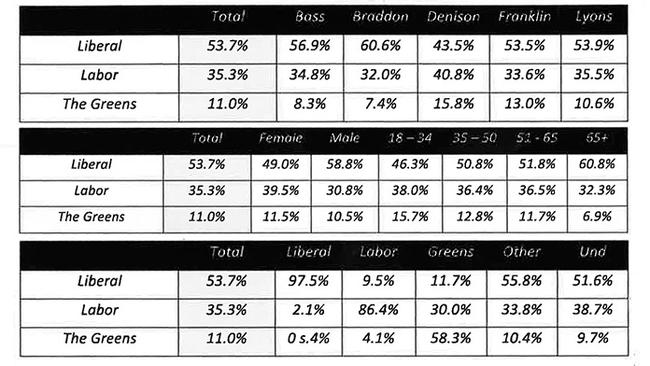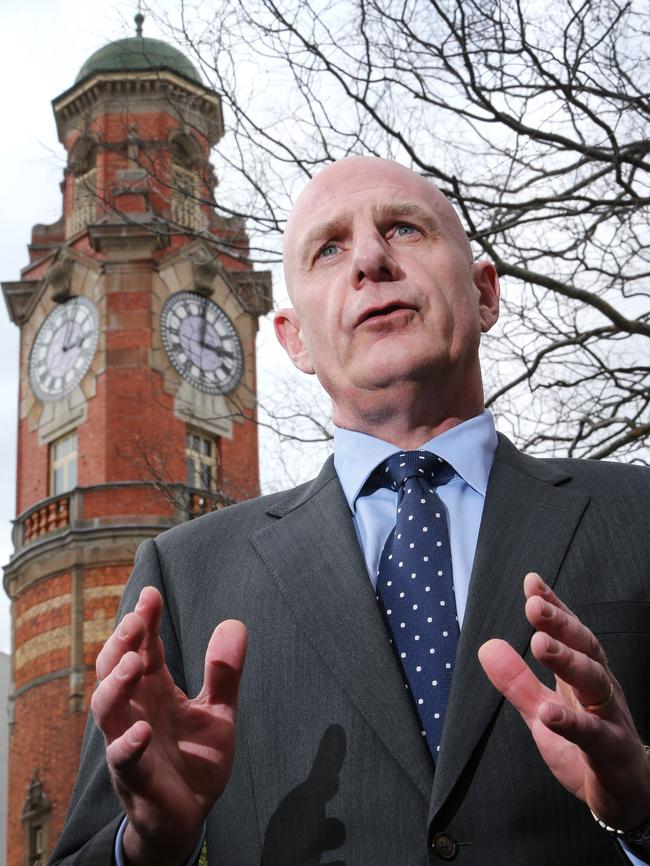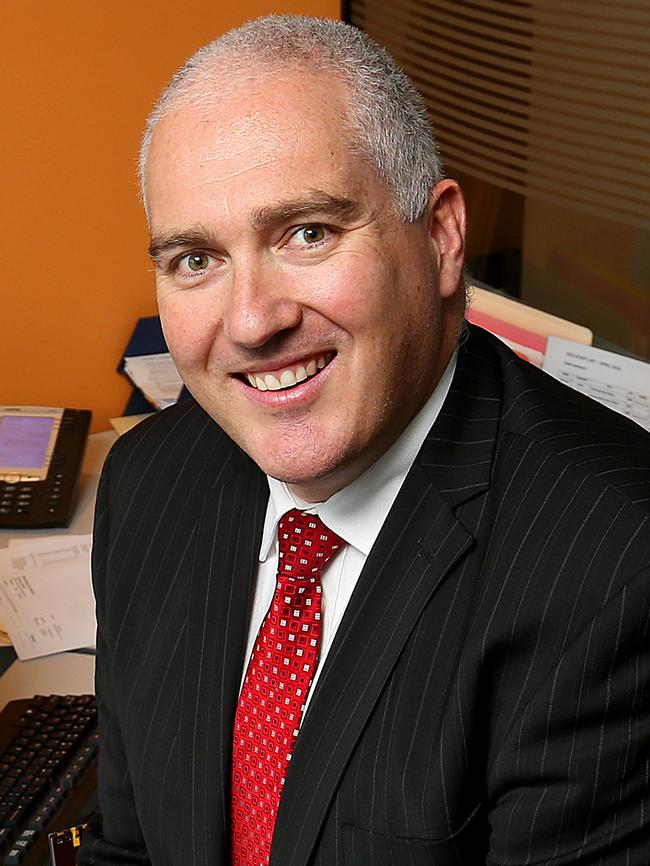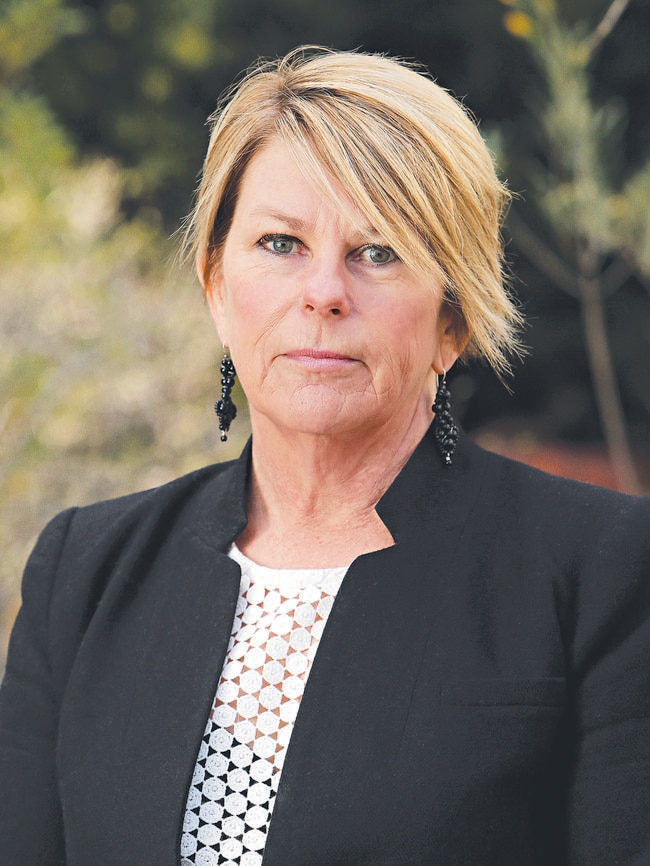Exclusive polling reveals which party Tasmanians trust to keep the economy in check
LABOR, Liberal, Greens ... which political party do you think is best placed to manage Tasmania’s economy? READ EACH PARTY’S STATEMENT
Tasmania
Don't miss out on the headlines from Tasmania. Followed categories will be added to My News.
MORE Tasmanians trust the Liberals to manage the economy compared to both Labor and the Greens combined, new polling shows.
Exclusive ReachTEL polling, commissioned by the Mercury, shows 53.7 per cent of Tasmanians believe the Liberals “are better placed to manage the economy” compared to Labor (35.3 per cent) and the Greens (11 per cent).
READ THE ARGUMENTS FROM PETER GUTWEIN, BRYAN GREEN AND CASSY O’CONNOR BELOW.
The results have prompted calls from one of Tasmania’s most respected economists for Treasurer Peter Gutwein to lay out the State Government’s economic policy blueprint for its next term of government.
PART ONE: PROSPECT OF A HUNG HOUSE IN TASMANIA
PART TWO: GET ON BOARD LIGHT RAIL
The Liberal vote was the strongest in Braddon (60.6 per cent), evenly spread between about 53-56 per cent across Bass, Franklin and Lyons and the weakest in Denison, where it only marginally led Labor 43.5 per cent to 40.8 per cent. The Greens also were strongest in Denison, with 15.8 per cent and the weakest in Bass (8.3 per cent).
The Liberals are strongest among men (58.8 per cent) compared to women (49 per cent).

Leading economist Saul Eslake said he was not surprised by the results.
“Federally and in most states the Coalition has a natural advantages on economic management in the same way Labor does on education and health,” Mr Eslake said.
“I suspect that Labor and the Greens still have a bit of living down to do after presiding over a recession during the previous government.”
Mr Eslake called for bold reform before the last state election.
He told the Mercury he has “cut the current government some slack” because leaders like Tony Abbott and Campbell Newman have learned the hard way you cannot make bold reform without a mandate.
“They are now 18 months away from the next State Election,” he said.
“They need to think about what sort of second term mandate they want.
“Do they want to mind the stores or make the changes that I think need to be made to underwrite a more prosperous future for Tasmania.”


Mr Eslake suggested targeted privatisation including TasPorts and some local council mergers.
Tasmanian Chamber of Commerce and Industry CEO Michael Bailey said the results reflected the fact the State Government has articulated a clear economic plan with which it had been able to stick.
Business and the community became frustrated with previous governments’ budgets dissolving “into the ether almost as soon as it was released”.
“Labor has also not put together an alternate budget since they have been in opposition,” Mr Bailey said.

“I suspect that this is hurting their economic credentials, too.
“To be seen as a viable economic alternative they need to put pen to paper and articulate how they would manage they state.”
He said the Greens were “not known for, or probably want to be known for, their strong economic thinking”.
“Their policy and alternate budget is more theme-based rather than connecting with a modern economy,” he said.
“Tasmania has also seen significant economic upturn in the past two years which would support this result.”
Tasmanian Council of Social Services CEO Kym Goodes said it was vital the parties released policies and strategies that tackled systemic disadvantage in the lead-up to the next State Election, particularly in light of recent results in the US and UK
“The best managers of our economy are those who can bridge the divide between the two Tasmanias,” Ms Goodes said.

“Addressing inequality must be at the forefront of economic decision-making.
“The political fallout of inequality can be disastrous, as we’ve seen in the UK and the US this year.
“In the lead up to the next State election I expect to see policies from all parties that tackle the systemic causes of disadvantage.”
Ms Goodes said the parties needed to be conscious of the fact that people became angry and disengaged if they felt they were not being listened to.
“These voters live in communities that have lost industries, jobs and services,” she said.
“Many parts of Tasmania are suffering in a similar way.
“It is vital that our politicians listen without judgment to people in communities and work with them on the solutions.”


